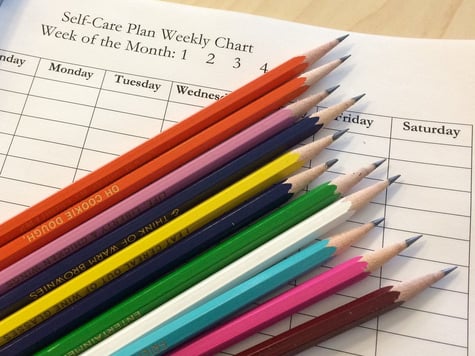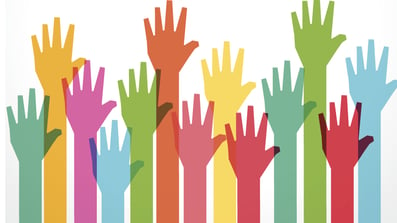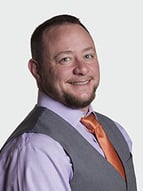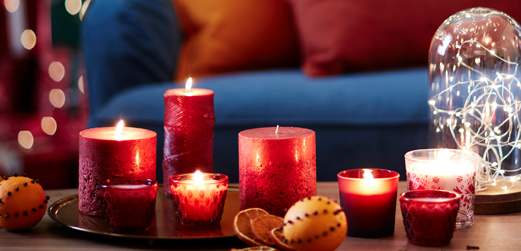There are many challenges that face the queer community during the holidays, which you can read about here. How to deal with these challenges is another conversation, so regardless of whether or not we will participate in Festivus with families, I’m going to break it down into three parts: self-care, care-of-others, and care-for-intimate-relationships. Each, of course, informs the others. Some of this is directed at queer folx and some at our allies.
The phrase “self-care” has become ubiquitous in modern discourse, but what does it really mean? In the context of holiday stress, I think of it as allowing myself to do the things that make me feel the safest, healthiest, and most connected. Each person is going to have their own self-care lists. Here are the things that top my personal list: putting forgiveness first, getting more sleep than usual, eating as well as possible; working out regularly (and maybe a bit more than usual), reading extra brain candy, saying no to things I don’t want to do, reaching out to loved ones whenever I start feeling blue, doing good in my communities, defending others as I would myself and others, therapy (physical and emotional), playing with my dogs and cat, and seeking physical comfort and contact.

The only items on this list that I feel bear expanding upon are defending myself and others and putting forgiveness first. Mostly, the forgiveness is for myself. Most people I know are their own worst critics and I am no exception. I am fortunate that I don’t suffer from much seasonal depression and I love cold weather, but I recognize that in the winter months, I am prone to more self-critique than usual. Between receiving holiday cards of happy families doing happy things, new year’s resolutions and reflections, toxic family encounters and a general introvert’s reluctance to socialize, I can get really down on myself. So I try to spend a bit more time on forgiveness. It’s OK if I don’t want to go to things and it’s OK when I do. This leads to standing up for myself as I would for others. When someone is attacking you, try this thought experiment: if a friend was telling you about this very experience, what would you tell them? Would you say, “that’s crap! you don’t deserve that!” or would you remain silent? Assuming you are an empathetic human, you’d defend your friend. Then ask yourself why you’re less worthy than your friend. It’s a simple shift, but it can create dramatic results. If you suddenly start giving yourself the same respect you give to others, the ground you stand on becomes much more solid.
It can also be very healing and empowering when you stand up to someone attacking a friend, or even a stranger. I’m not advocating you put yourself at risk of harm, but I am saying that there is a great deal of power in extending your comfort zone in advocating for others. I’ve often wondered if there is more to the idea that acts of charity are so common during the time of year when days are so short because it feels good to do good. Maybe we need to extend ourselves in order to lighten our own loads. That, however, is a different rabbit hole.

Back on topic, let’s talk about being good to your intimate relationships- by this I mean lovers, close friends, family, etc. I’m talking to you, queer ally. If you count queer folx in the mix of your intimates, put extra effort into reaching out to them. If you have family members who are queer or questioning, it’s not enough to just love them. Sure, that’s a critical first step, but go beyond love. Ask them how they would like to be welcomed into your family. Ask what they need to feel safe. When you’re sitting around the table and Drunkle makes that horrible joke, don’t let him get away with it and don’t make your queer family member do the defending. To paraphrase Vernā Myers, when Grandma makes a racist comment at the table and no one says anything, look around the table. What does the nine-year-old at the other end of the table learn? What does your tacit approval say to your nephew when Drunkle tells the homophobic joke?
When I was first coming out as trans, some simple things my people did that were really helpful were making sure that I was being identified correctly, and when someone did misgender me, I wasn’t always the one to have to correct them. Don’t make assumptions about gender. Don’t make assumptions of heteronormativity, you might have to ask, but be aware that the dining room table with the extended family might not be the best moment to say, “Hey Whit, are you still sleeping with people of all genders?” For me, that would be cool, but it might be very exposing and make someone else feel vulnerable, regardless of your intention to be the cool elder sibling.
Ask, advocate, listen, act, and listen some more.

If you know that you have a loved one who has chosen to go into a toxic environment, step back from the self-righteous position of criticizing the decision. You don’t know what factors play into that decision and heaping critique upon them can do nothing but hurt. When I know I have people who are heading that way, I just tell them I am available to them if they need to talk or vent. I try to find out what local resources might be available to them while they’re at risk, and I try to make plans either for a catch-up or a fun event when they come back.
If you queer folx opt to stay away from family events, know that this is an equally difficult decision. When we choose not to participate, we may be doing what is safe, but it also hurts. Again, reach out. Extend invitations, be graceful if they are declined, and try to make plans for the future.
Last but certainly not least, if the season has you, a friend, family member or loved one at their wit’s end, reach out to crisis centers, suicide hotlines, networks and other resources. Here are a few:
The Trevor Project: http://www.thetrevorproject.org/
The TransLifeline: https://www.translifeline.org/
The National Suicide Prevention Hotline: http://suicidepreventionlifeline.org/
The American Foundation for Suicide Prevention: https://afsp.org/
For family guidance, PFLAG: https://www.pflag.org/
 This post was written by Point Scholar Whit Ryan
This post was written by Point Scholar Whit Ryan
Pursuing a Master of Arts degree in Sport and Performance Psychology at the University of Denver Graduate School of Professional Psychology. Whit has developed a passion for creating safe spaces for LGBTQ athletes in the sports of their choice. As a student, leader, athlete, coach, and umpire, Whit has worked to encourage the support of queer students and athletes in many venues. Read more about Whit here.

